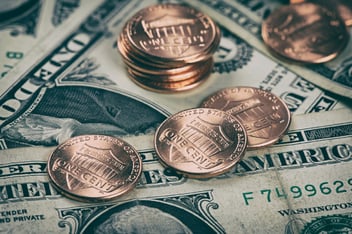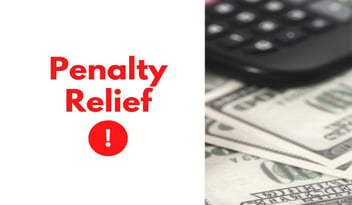This Is Your 2022 Plan to Regain Control of Your Finances
"Failure to plan is planing to fail," the old adage goes. Quite who came up with this saying, no one knows. But whether this mystery guru recognised it or not, whoever originated that phrase was talking about money.
According to one recent survey, Americans lose $415 billion each year due to a general lack of financial education. According to the same source, the average amount of credit card debt carried by a person is over $6,000, while nearly 40% of people have less than $300 in their savings accounts. This problem has been compounded by the COVID-19 pandemic, which has forced many to use whatever savings they have to make ends meet.
However, if you’re reading this panicking about how no one ever taught you what an IRA is, you’re in good company! Hope is never lost. Anyone can apply a few essential measures to take charge of their finances in the new year if they keep a few key things in mind along the process. 2022 is gonna be your year!
Now is the time to get on the road to a better financial future
Taking use of the variety of various services that most banks have to offer is by far one of the most effective methods to construct a better financial future for yourself.
When you open up your online banking app, for example, you're usually met with reminders of the advanced services that are available — which, if you're like most people, you probably ignore. We’re all guilty of it! However, you should probably pay a least a liiitle attention to them, because some of them can do an automatic credit check and alert you to any abnormalities with your credit report right away. To assist you in saving as much money as possible with each paycheck, you can set up automatic transfers from your checking account to your savings account. Many banks may even provide complimentary financial planning services if you have a line of credit with them. Whatever the case may be, these are all tools that should be used to your advantage!
Making a proactive plan for what you're going to do with your tax refund before you get it
This is another great way to take charge of your financial situation in the new year. Yes, doing taxes is something that almost no one looks forward to (apart from us of course, but we’re nerdy like that). It is, however, a requirement — and it is only a negative scenario if you allow it to be one. Enjoy dreaming about how you will save, invest or pay off debt with your refund.
Take advantage of January to assess your present financial condition and consider how that prospective return money could be put to the best use. Are there any high-interest credit cards you could use to help you pay them off? Would putting money toward a mortgage payment free up funds for something else be beneficial? Is there a big purchase on the horizon that you've been attempting to save money for? All of these are crucial questions that must be addressed. And January is the ideal time to make your refund plan. The point is that: instead of waiting until the tax return check gets in the mail, you should start thinking about what you want to do with that money right now. It's easy to let the thrill of receiving a large check cloud your judgement, but that's not always the best option…
Aside from that, keep in mind that your financial objectives must be defined, attainable, and significant. Make sure that whatever objectives you establish for yourself are measurable. You'll always have setbacks; we all do. However, if you begin to track your progress toward your objectives, you'll gain a greater understanding of how far you've come. That sensation will quickly develop its own momentum, which will power all your efforts long into the new year and beyond.
Examine your investments
It's vital that you evaluate your portfolio on a regular basis to maintain track of the state of your assets, how they're ageing, and your cash flow. Your investment portfolio will alter as you get older to match your risk profile. For example, if you are young and have few dependents, you are more open to high-risk, high-return ventures. In your 40s, on the other hand, you're more inclined to be cautious because you may have several liabilities and can't afford to take big chances. If you have found yourself with some risky investments and have suffered financially from that in 2021, January is the time to review your investment portfolio.
The end-of-year portfolio review is also a great time to gather all of your investments in one place and look at their overall asset allocation. All asset classes are included, including gold real estate, mutual funds, EPFs, and stock. The next step is to track your investment returns throughout the course of the year to see if they reach your expectations. So, where does your investment stand now if you expect a 12 % return on a mid-cap stock?
At the same time, you can compare an asset's weightage to its returns to determine the right balance of high returns and stable investments. The portfolio review gives you an accurate picture of each asset's weighting, as well as the overall returns on your portfolio, and allows you to reassess your investments.
Automate saving and investing
Automating savings and investments is one of the safest strategies to maintain adequate cash flow. It's especially effective for people who find themselves spending more than they should. The yearly review can help you figure out how much you should be investing in your portfolio monthly, quarterly, half-yearly, or annually.
Automating your finances becomes even more critical for long-term investments that may not appear to be significant now. This includes putting money into a retirement fund when you're in your 30s or getting health insurance when you're young and healthy. We can ensure that our prejudices do not prevent us from making these investments by automating these savings.
Make emergency finances more robust
The last two years have demonstrated the value of having a savings account and a nest egg to assist you in getting through difficult times. An emergency fund is intended to provide us with a financial safety net in the event of an unforeseen financial setback, such as a loss of income. It can also include unanticipated large bills, such as expensive car repairs.
Financial planning, being disciplined with your money, and paying off debt can be difficult and emotional work, and we understand that. It's almost like therapy, for our finances; it takes work and strength.
If you'd like to learn more about the crucial steps you can take to take charge of your money in 2022, or if you have any other questions, we can arrange an advice session with you by clicking here!



